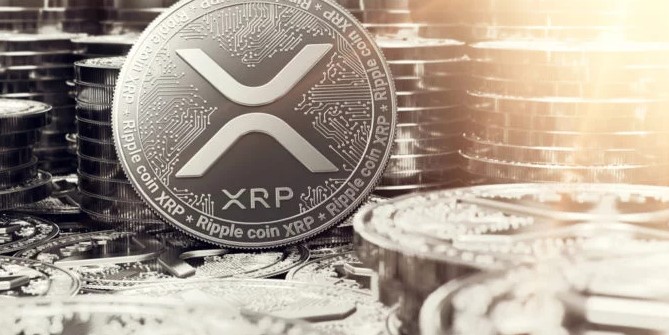
Ripple (XRP) is not a cryptocurrency, and it is heavily centralized in the hands of the corporate entity known as Ripple. That’s the opinion of a cryptocurrency exchange which listed XRP on its platform just one day ago.
‘XRP IS NOT A CRYPTOCURRENCY’
The Coinmotion exchange, based in Finland, released this blog post just hours after listing Ripple on its trading platform, titled: “XRP is a Centralized Virtual Currency.”
The post details the opinion of the exchange operators that XRP is not a typical cryptocurrency, is not backed up by a traditional blockchain, and that it is heavily centralized in the hands of parent company, Ripple Labs.
“What one needs to know about XRP is that it is not cryptocurrency in the strict meaning of the word… What differentiates XRP from cryptocurrencies is that it is not based on blockchain, it is not mined and it is heavily centralized. Ripple network is a suite of different applications by Ripple Labs. XRP, is the currency of Ripple network, which the apps use.”
That’s an opinion that’s been doing the rounds for a long time in crypto circles. Every few months another voice pops up to reveal the “shady truth” that XRP is actually a centralized product.
But the difference is, this time it’s coming from a voice with something to lose by making that allegation. Coinmotion has absolutely nothing to gain by spreading FUD about XRP, and the fact that the release of this blog post coincides with its listing of XRP (after huge demand from Finnish consumers), only demonstrates how concerned they must be.
‘RIPPLE LABS CONTROLS XRP’
The article claims that Ripple (the network) doesn’t use a blockchain to secure transactions, but instead uses a method known as HashTree which is patented by Ripple Labs (the company). From the post:
“In HashTree all the transactions and balances are combined to a single number, which servers compare to each other to reach consensus. This kind of system is faster than blockchain, but far more centralized.”
Coinmotion also details the particulars of XRP’s (the currency) supply statistics, noting:
“XRP isn’t mined like typical cryptocurrencies. All 100 billion ripple coins have already been created. Ripple plans to release about half of them on to the markets while keeping the other half. Currently there are about 39% of ripple in the open markets, while 61% are kept by Ripple Labs.”
According to Coinmotion, the control of XRP in the hands of a single company amounts to a monopoly – one which is antithetical to the standard principles of a cryptocurrency like Bitcoin:
“Ripple Labs has also the control on how and when to release new ripple on the markets. This is strackly (sic) in contrast to how decentralized cryptocurrencies work: with Bitcoin everybody knows and agrees on how new bitcoin are minted. With Ripple it is the monopoly of Ripple Labs to make the decisions.”
WHY RIPPLE (XRP) COULD SUCCEED ANYWAY
The article rounds off by suggesting that XRP could still succeed despite the points detailed above. Even if Coinmotion doesn’t consider XRP to be a pure crypto or blockchain solution, it still qualifies as a modern fintech solution. The article notes:
“As a centralized system it could also be easier to jump on than decentralized blockchain systems. Grand institutions such as large scale companies and banks are often quite conservative in adapting new systems. Centralized system might seem less intimidating than a decentralized one.”
That’s a sentiment I’ve expressed myself, and it’s one that was easy to come by towards the end of last year, when every week in September and October seemed to be about financial institutions adopting one of Ripple Labs’ products.
By January of this year, Ripple Labs announced the addition of thirteen more financial institutions to its RippleNet, taking the total to over 200. Round about the same time, co-founder Jed McCaleb – now of Stellar – found time to fire his own shots at cryptocurrency competitors, alleging that Tron (TRX) was “just garbage.”
BRAD GARLINGHOUSE CLAIMS XRP IS ‘VERY CLEARLY DECENTRALIZED’
As for criticism of XRP, the CEO of Ripple Labs, Brad Garlinghouse, has never shied away from the debate, and made the case in 2018 that even he had no control over XRP’s ledger:
“It is very clearly decentralized. I, as CEO of the company, can’t control the XRP ledger.”
Coinmotion ends with a rather ominous statement which appears to translate roughly as “If this goes wrong, it’s on you!”
“Nonetheless since You, our dear customer, have asked for it, we have offered you the possibility to buy and sell XRP on Coinmotion.”
